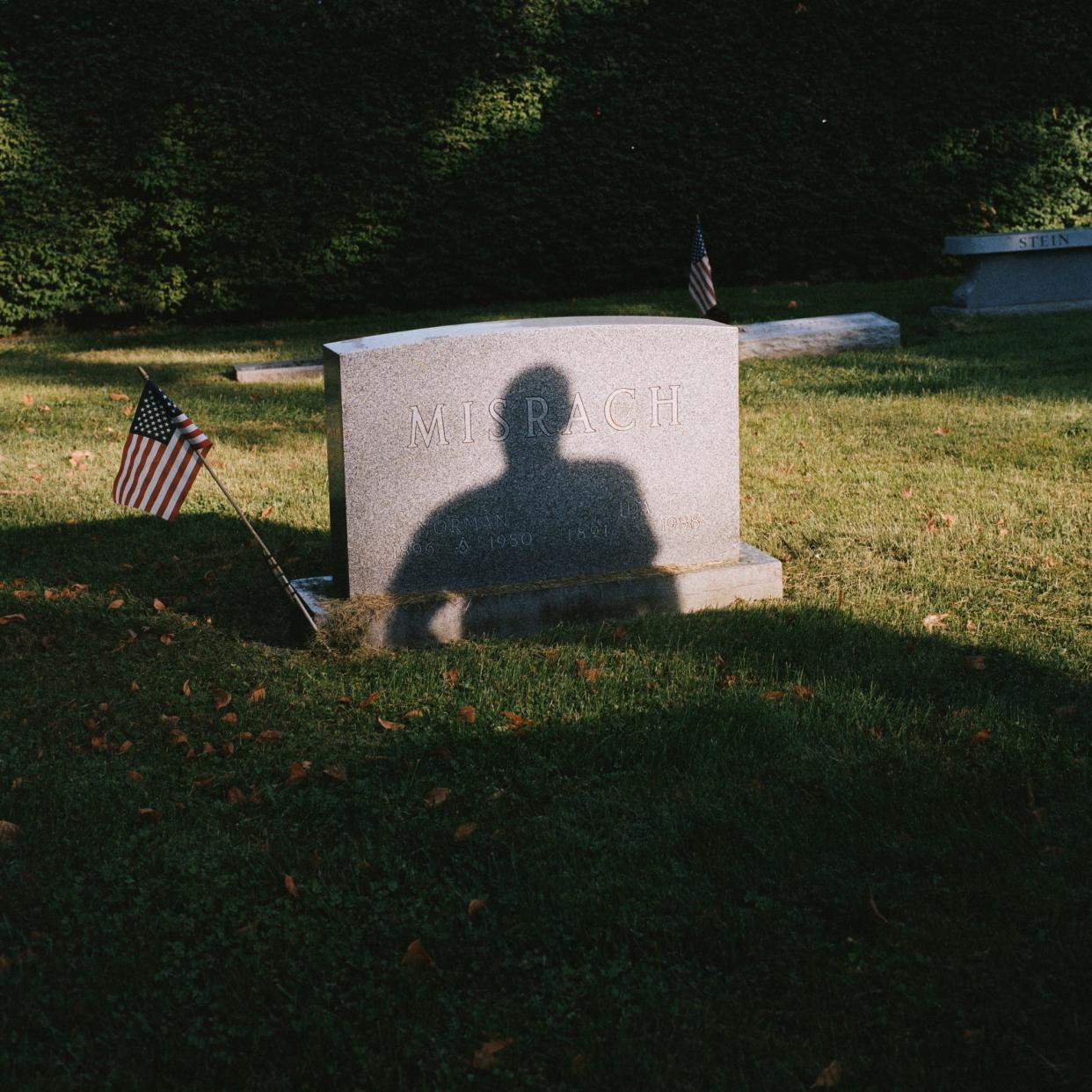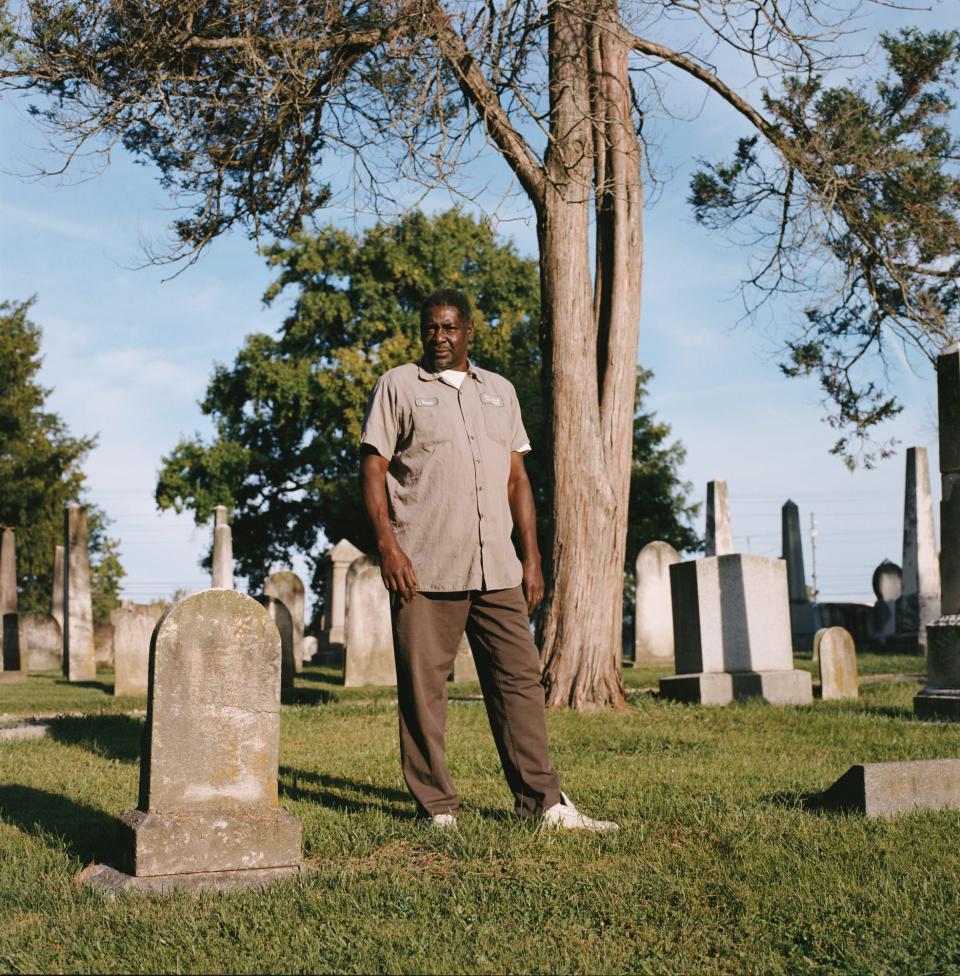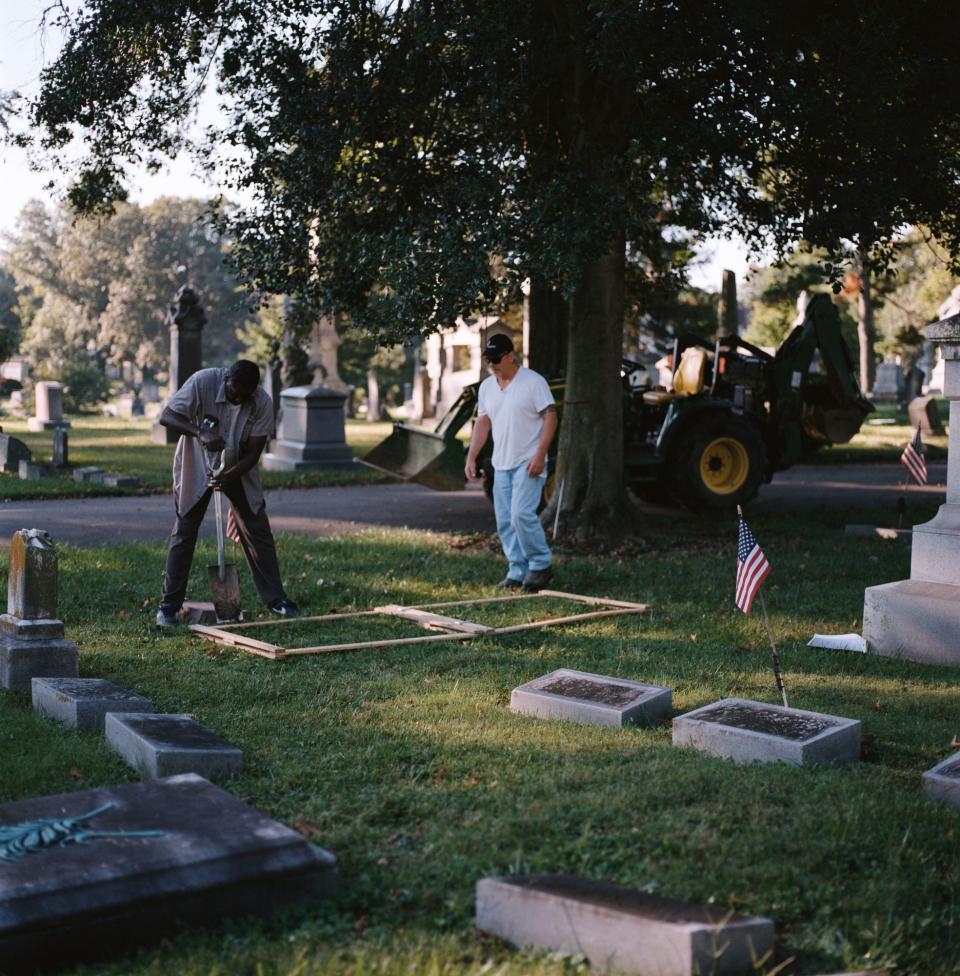'In 15 minutes, I will have you in a hole.' Meet Ronnie King, he digs graves for a living

- Oops!Something went wrong.Please try again later.
“How long does it take to dig a grave?” says Ronnie King, grinning. “In 15 minutes, I will have you in a hole, trust me.”
For King, digging graves is one of the easier parts of his job. In his nearly 24 years as a foreman for Jewish Cemeteries of Greater Cincinnati, he has seen a lot.
In Jewish tradition, burials should take place as soon after death as possible. Often the person is buried the same day or just a few days after death, which means cemetery staff can be met with challenging weather conditions. With most burials, several staff members work together over the course of an hour to prepare a grave – even when the weather is tough.
Heritage Acres:Cincinnati area’s first natural burial ground
With the help of contract workers, King and nine other staff members operate 25 cemeteries that house over 35,000 graves, preserving the history and memory of Cincinnati’s Jewish community. Many of the staff have worked there for years. As a foreman and now field supervisor, King has personally helped dig over a thousand graves in Jewish cemeteries around the city for about two and a half decades.

Sometimes, King’s job includes ensuring family members or rabbis don’t fall into a grave during a ceremony, something that happens more often than most might think, he says. In the Jewish tradition, families will help bury their loved ones by manually shoveling dirt into the grave at the end of the ceremony as a “final act of kindness,” because it is an act that can never be repaid. Occasionally during this last act, people can get too close to the edge. But King is there for the whole burial process and outdoor ceremony – ensuring everyone is cared for and safe during a difficult time in their lives.
Although not of the Jewish faith himself, “I can say Jewish prayers (during the ceremonies) because I’ve been here long enough to know it,” he says. “I respect the community and appreciate what they’ve done for me.”
“He really knows how each rabbi operates,” says David Harris, executive director of Jewish Cemeteries of Greater Cincinnati. "Down to every detail. He has been a vital leader in the cemetery, training many other staff members.”

“Ronnie has performed the burials of the vast majority of the Cincinnati Jewish community over the last 20 years, and the community has the same kind of respect and connection to Ronnie as he professes,” Harris added.
On several occasions, King helped carry family members to ceremonies who were unable to walk down the steep cemetery hill. “I just do my job and it kicks in,” King says.
“I have dealt with a lot of losses,” he added. “This job is not something you can leave every day. You take it home with you … it gets to you. I go home and think about this place – I think about the families. I have dreams about it … (but) I’d rather have dreams than have none at all.”
This article originally appeared on Cincinnati Enquirer: Cincinnati gravedigger Ronnie King has tales from 24 years on the job

